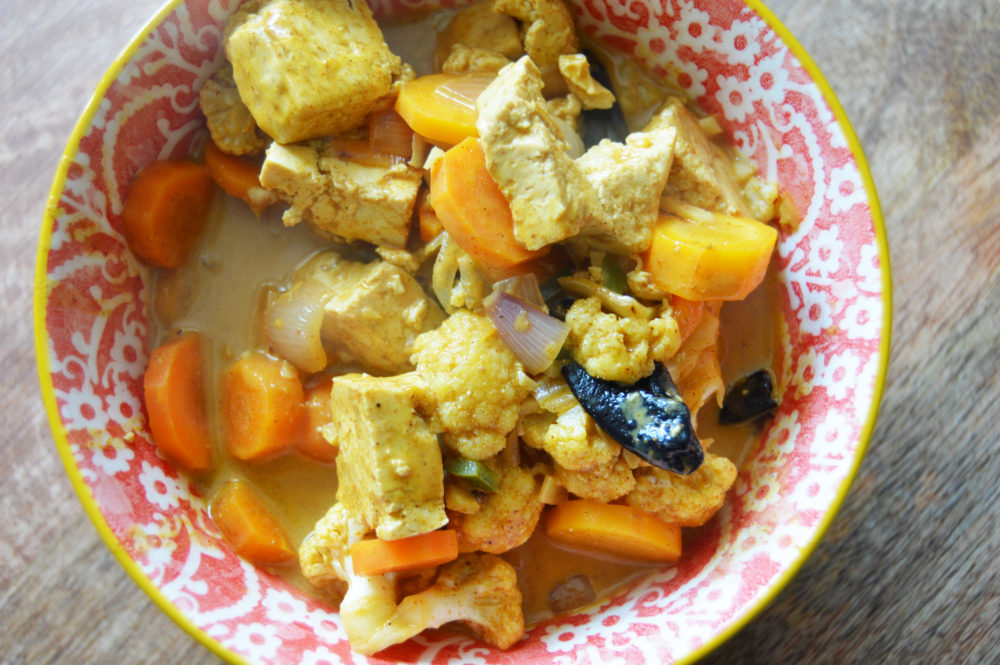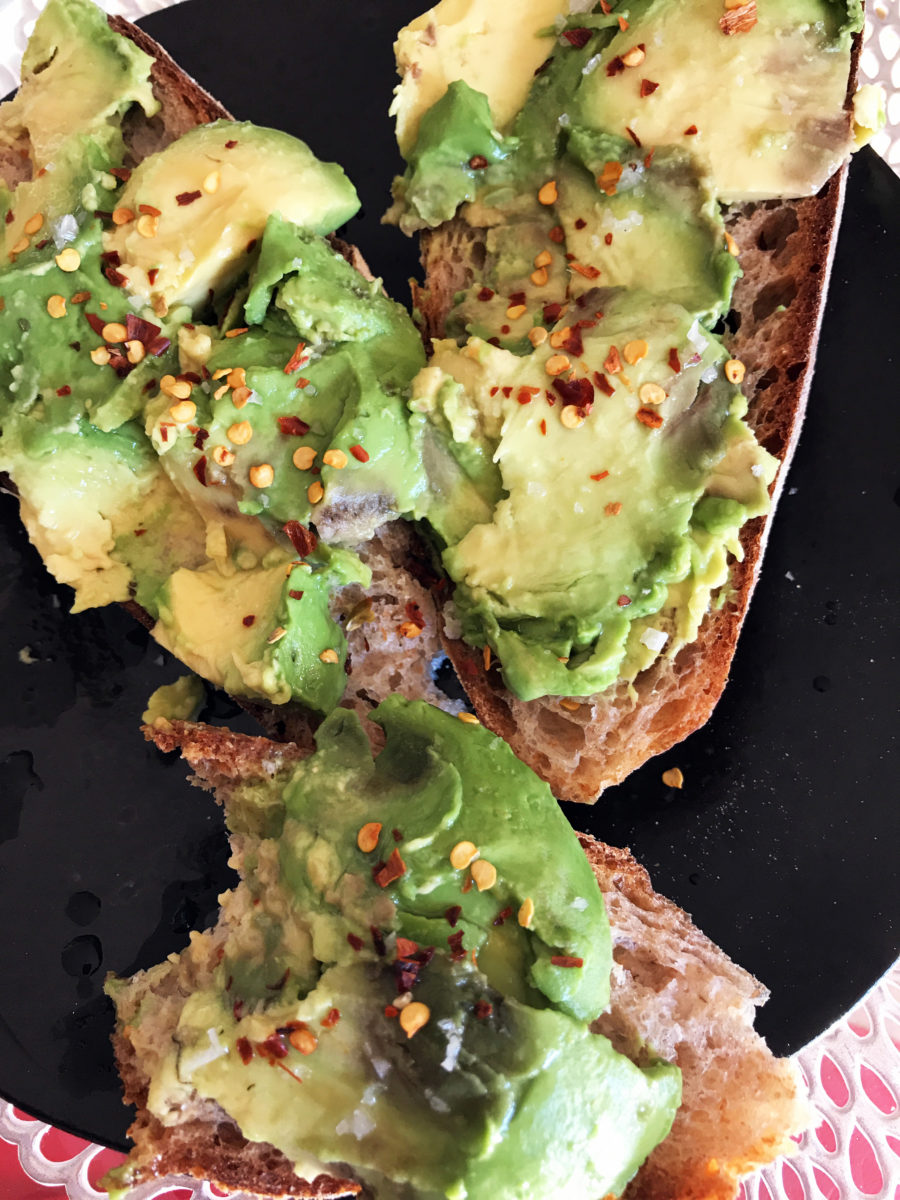As a health coach and someone who is passionate about healthy eating, I’m always curious about food trends but often skeptical, to be honest. I find that a lot of it is about marketing, and often there is little to no scientific evidence backing certain trends. That’s probably what bothers me the most–the lack of research and proof that often accompanies the latest trends. Like, when and why did bone broth become such a superfood?! Broth has been around forever, but now suddenly, it’s supposedly magical and will prolong your life. Same with the keto diet–“carbs are bad for you, just eat protein”–but really, who has the proof that there is any truth to this? What are the actual health benefits?

So when I first heard about fasting and intermittent fasting, I was, of course, cautious. Especially because it seems like the keto community is all about it. Fasting also meant restriction to me, and I’m wary of that. I have seen too many eating disorders in close proximity not to be worried about it. Not eating didn’t seem natural or wise to me. Especially considering the fact that food is energy and that’s just what you need to get through the day. In addition, my athletic endeavors have picked up, so I feel like I need to be extra careful about nutrition–extra careful about getting enough calories and fuel for daily training sessions.
Something about fasting kept my attention, however, beyond the usual. Maybe it was because I heard of some research out there–some actual science analyzing its benefits and true advantages.
Looks like fasting’s biggest benefits are focus, fat burn, and weight loss. I don’t need to lose any weight, so that wasn’t a motivating factor. But I do think about fat burn, especially as I’m working out a considerable amount and would love to optimize the benefits. Well, and focus, is of course always welcome. The more focus the better. So I gave it some thought and decided to give it a try.
There are different types of intermittent fasting: you can fast for a whole 24 hours (or more) or alternatively you can just spread out your meals so that there are about 16 hours in between your last meal of the day and then the first meal the next day. The idea is that you either just have one big meal or two meals but within a way shorter time period, like 6 to 8 hours. Really, your body only knows two states: eating state and fasting state. What a lot of people don’t know is that once you stop eating, you don’t immediately go into fasting mode. It takes your body a couple hours to transition and start burning fat. So if you eat every 3 to 4 hours, you actually never get into fasting mode – instead, your body will continuously burn carbohydrates and protein from food, and put the excess fat into your fat reserves (because we can store unlimited amounts of fat). All that to say that giving your body longer breaks between meals will actually let it go into fasting state during which it will start burning fat reserves.
Fasting for an entire 24 hours is hard. I have probably done it twice in my life and hated every moment of it. That doesn’t mean I wouldn’t try it again but with a full-time job, a pretty elaborate workout schedule (I’m currently training for a Swim Race in Atlanta, which means 6 workouts a week, containing a mix if running, swimming, and HIIT workouts) and a busy life, it doesn’t seem feasible to totally give up food. What does seem feasible though, is reducing my feeding times. I used to be a big breakfast lover, but since I don’t like eating before working out, it seemed natural to try and fit most of my meals within the lunch to dinner time frame. And really, I love having early dinners, so I decided to try having my first meal around 10 or 11 and then dinner around 6 or 7. On weekends, this is pretty easy to follow. On weekdays, it’s a bit tougher to get in an early dinner. But I did manage to stick to it for a couple of weeks, and I am still refining the process.
What I love about it is feeling actually hungry for my meals. I don’t necessarily eat fewer calories in total, but I eat bigger meals in one sitting, which I like because it makes me feel full. It turns out that skipping breakfast in the morning helps me to be way more focused when I get to work and get more stuff done, in a faster and more efficient way. In addition, I have never been a big snacker. It’s not at all in my culture. Growing up, we wouldn’t really ever snack. Maybe a piece of fruit once in a while. But the US is obsessed with snacks, which is a habit I have found myself imitating from time to time. Well, my fasting experiment has helped me to cut out snacking and go back to my old habits. In addition, I must say that I don’t really feel hungry ever with two larger meals a day in a shorter time period. My longest fast, the one from 8 pm to 10 or 11 am the next day, is mostly spent sleeping, working out, and commuting to work. So there is not time to actually think about it too much.

Vegan soup with tofu and delicious veggies tastes extra good after not eating for several hours.

Ditto avo toast!
The downside of this lifestyle is fitting it into an active life. It’s pretty easy to eat this way if you don’t workout a lot. I have felt tired and sluggish at times after workouts. Especially intense swimming sessions or HIIT workouts can leave you depleted at times, so I do sometimes wish I could have my first meal earlier. I don’t really feel hungry but rather I feel like my muscles want fuel to carry on.
All in all, the two meals a day in a shorter time period way of eating seems pretty reasonable and sustainable. It actually simplifies life, requires little prep, and only a couple of days to transition. The most important aspect is to make sure you eat enough calories during the two meals you have. Have I lost any weight or fat? I’m not sure about that. I definitely feel way more focused though, which is a tremendous benefit.

Have you tried intermittent fasting? What benefits did you experience?
Also by Isabelle: Why You Should Never, Ever Eat Fake Sugar (Hint: It Can Make You Gain)
Related: My Intermittent Fasting Results Blew Me Away—5 Ways It Changed My Life
I Tried It: Intermittent Fasting (+ Why You Should Too)
Get more like this—Subscribe to our daily inspirational newsletter for exclusive content!
__
Photo: Mc Jefferson Agloro on Unsplash, Isabelle Steichen
